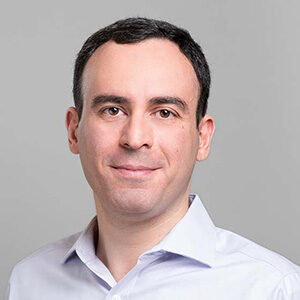10 U of T Engineering faculty and staff members have been honoured for their outstanding contributions to the faculty with teaching, research and administrative staff awards. These awards recognize exceptional faculty and staff for their citizenship, leadership and innovation in teaching and research.
“I’m glad to have this opportunity to acknowledge the tremendous contributions made by our amazing faculty and staff,” says U of T Engineering Dean Christopher Yip.
“Congratulations to the awardees, and my heartfelt thanks to all our faculty and staff members for their hard work and commitment to the faculty’s teaching and research missions.”
The award recipients are:
ADMINISTRATIVE STAFF AWARDS

Fanny Manousos (MSE) — Agnes Kaneko Citizenship Award
Recognizing a staff member who has served with distinction and made contributions to the faculty’s mission above and beyond their job description over a long period of time.
Manousos joined MSE in 1998, immediately demonstrating remarkable leadership during a major administrative transition. Over the past 27 years, in a series of progressively more senior roles, she has revamped the MSE office, recruited, trained and mentored new staff, and provided outstanding support to four department chairs. Manousos has played a key role in managing and coordinating all administrative and financial portfolios in MSE, juggling duties that might be assigned to several staff members in larger departments. Her exceptional work, as well as her continuous support for all MSE’s faculty, staff, and students, has been instrumental in the department’s success and growth.
Beyond her administrative expertise, Manousos is known for fostering a positive and inclusive work environment. Her approachability, professionalism, and dedication have made her a trusted advisor and mentor to many within the department and beyond. She is always willing to go above and beyond, whether by assisting with complex administrative tasks, resolving challenges efficiently, or ensuring that students and faculty have the resources they need to succeed. Manousos is the keystone of MSE, keeping the department running smoothly for nearly three decades.
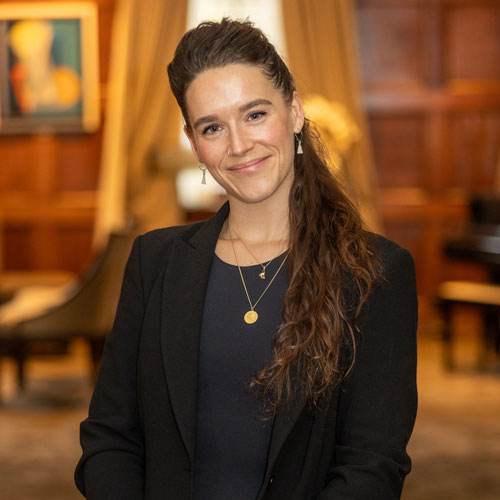
Jennifer Galley (ISTEP) — Harpreet Dhariwal Emerging Leader Award
Recognizing a staff member who leads by example in their dedication to the faculty’s mission and demonstrates potential to assume a more senior leadership role.
Galley joined Troost ILead as a leadership education specialist in 2022. Her role has since expanded to experiential leadership specialist for all ISTEP programs. In this role, she supports co-curricular and curricular leadership education by facilitating classroom lectures, leading professional skills programming, offering one-to-one teamwork advising, and serving as an expert resource to faculty and staff. This work requires a considerable amount of relationship building and collaboration, and Galley’s commitment and leadership have fostered trust with students and colleagues alike. As an example, she was able to achieve buy-in and collaborate with two departments who had previously been hesitant about the program.
Galley chaired the steering committee for ISTEP’s flagship co-curricular event, the Clarke Prize Environmental Design Challenge, resulting in an extremely successful day with more than 160 students participating. Above and beyond her student-facing role, Galley has facilitated multiple workshops for industry partners such as Toronto Hydro, Professional Engineers Ontario, and Vale. For Vale, she developed and delivered two modules with instructional videos, which will be a key part of ISTEP’s industry programming going forward.
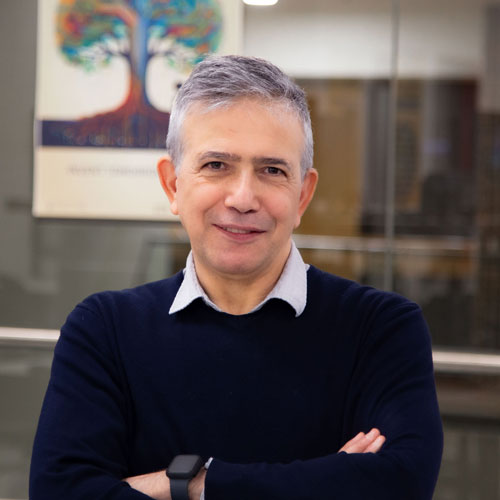
Afshin Poraria (ECE) — Catherine Gagne Sustained Excellence in Leadership Award
Recognizing a staff member who has demonstrated leadership in supporting the faculty’s mission over a sustained period.
Poraria joined ECE in 1996 as a senior research associate, then became manager of the Energy Systems Lab in 2015. In that role, he established the lab as a showcase teaching and research facility. Most notably, Poraria was instrumental in establishing the DC Microgrid, which made the lab energy self-sufficient and enabled it to house some of the most sophisticated teaching and research equipment in North America. He received the Faculty’s Innovation Award for his work on the DC Microgrid in 2020.
In 2021, Poraria was appointed director, teaching laboratories for ECE, leading a team of technical staff to manage eight teaching labs across 12 sites. His leadership in this role has been transformational on many levels, from improving the undergraduate student experience, to providing new opportunities for alumni and donors to engage with ECE research, to fostering a culture of collaboration and teamwork among staff. Poraria has not only improved lab infrastructure but has also worked with faculty and staff to develop new lab courses and summer workshops in hardware and software. Recently, he was instrumental in establishing the Keysight Electronics Laboratory, a state-of-the-art facility designed to support undergraduate students in advanced research.
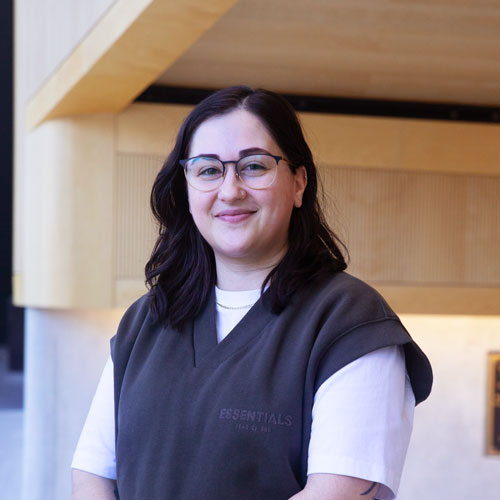
Irma Berardi (EngSci) — Barbara McCann Quality of Student Experience Award for Frontline Staff
Recognizing a staff member who has made significant contributions to the quality of student experience in the faculty through their outstanding frontline service.
Berardi is academic advisor for Year 1 and Year 2 international students in EngSci. In this role, she demonstrates an outstanding commitment to improving the overall experience for students transitioning not only to university but to a new country. Berardi has worked to create an inclusive and welcoming environment for these students, many of whom experience culture shock and language barriers to go along with the regular challenges of university life.
Berardi is an invaluable resource for students and a tireless advocate for their well-being. Whether she is addressing academic difficulties, offering wellness support, or helping students access institutional resources, she goes above and beyond to ensure that every student gets the help they need. She sets up routine advising appointments with at-risk students, offers stress management support and ensures that students are building their toolkit to thrive both academically and personally.
Berardi leads the EngSci GEARS Mentor program, in which upper-year students provide guidance and support to first-year and second-year students, and works to improve the program year over year. Her exceptional student service has significantly improved the challenging transition faced by EngSci’s international students.
RESEARCH AND TEACHING AWARDS

Mohamed Hassan (MIE) — Teaching Assistant Award
Recognizing a teaching assistant (TA) who demonstrates excellence in classroom teaching, working with students, and the development of course materials.
Over the past three years Hassan has been a TA for several MIE core second-year and third-year courses. His technical expertise and profound understanding of the course material have established him as an essential resource for his students and his fellow TAs. His ability to guide and support both his peers and his students, while remaining approachable and receptive to feedback, creates an environment where everyone feels empowered to contribute and ask questions.
Hassan has been remarkable in how he takes ownership of the courses he TAs. He developed a new laboratory curriculum for MIE364, in collaboration with the instructors, which integrated leading-edge software tools. Hassan took the lead in coordinating a large team of TAs from MIE304: Introduction to Quality Control and MIE364: Quality Control and Improvement as they joined forces to deliver the unified curriculum effectively. This coordination was particularly challenging, yet he managed it with great skill, ensuring all TAs were well-prepared and consistent in their teaching approach. Always seeking to improve his teaching skills, Hassan participated in the TA Training Program in 2022 and 2023, and in the Prospective Professors in Training program this past year.
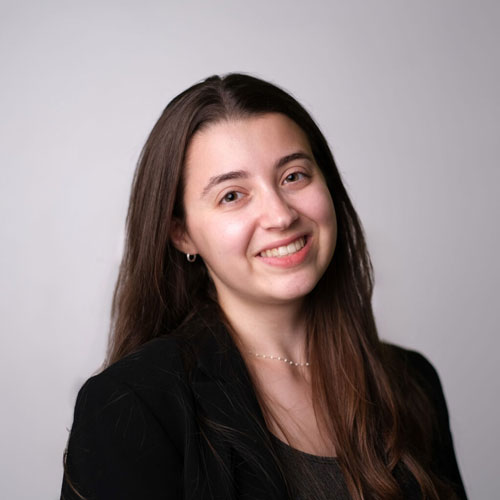
Samantha Unger (BME) — Teaching Assistant Award
Recognizing a teaching assistant (TA) who demonstrates excellence in classroom teaching, working with students, and the development of course materials.
A PhD candidate in BME, Unger has served as a TA for ESC180: Introduction to Computer Programming and ESC190: Computer Algorithms and Data Structures, the introductory programming courses in EngSci, since 2020. Unger combines deep understanding of course concepts, enthusiasm for teaching, commitment to students, and exceptional skill in designing course materials. In both her lab and classroom teaching, she is engaging, clear, and thoughtful in her approach to presentation.
Unger’s teaching philosophy emphasizes confidence building and generating curiosity for the material. Given the wide range of prior knowledge among students in ESC180, Unger’s ability to connect with and support all learners has earned her excellent evaluations — she consistently earns perfect scores for both clarity and helpfulness. Student feedback praises her ability to make complex concepts accessible, even for those with no prior programming experience.
Unger has further contributed to the faculty by designing and teaching the course Physiology from the Inside Out for the DEEP Summer Academy last year and serving as a TA for design courses. She received an EngSci Teaching Assistant Award for 2023/2024.
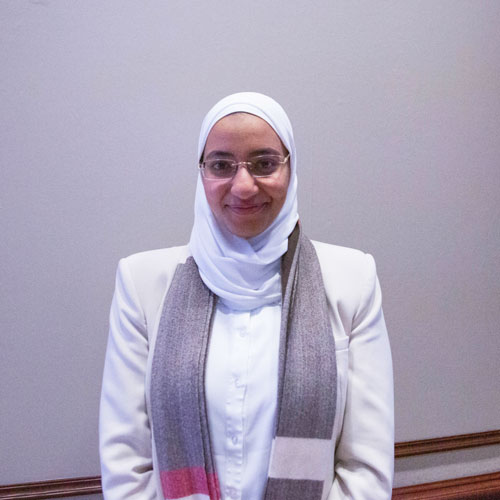
Salma Emara (ECE) — Early Career Teaching Award
Recognizing an early career educator who has demonstrated exceptional classroom instruction and teaching methods.
Emara joined ECE two years ago as an assistant professor, teaching stream. Since then, she has made an indelible mark on the department’s teaching culture, shaping how ECE delivers its core programming courses and ensuring that students develop critical skills for their future careers.
Emara teaches two core undergraduate courses: APS105: Computer Fundamentals, a first-year programming course, and ECE244: Programming Fundamentals, expanding on APS105. Emara has revitalized these courses in important ways, aligning with the department’s emphasis on experiential and project-based learning. She has developed open-source online textbooks for each of these courses, and student feedback frequently cites the clarity of these materials as key to their success.
As students often struggle to see the relevance of programming to other engineering subjects, Emara redesigned the labs in APS105 and ECE244 to focus on real-world problems. She has also enhanced debugging instruction through short videos and live demonstrations and collaborated with her design team to develop a virtual teaching assistant that provides instant course support. Emara has already received two departmental teaching awards, as well as consistently high teaching evaluations.
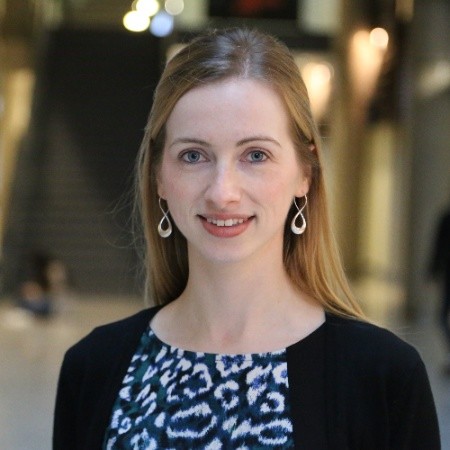
Jennifer Farmer (ChemE) — Faculty Teaching Award
Recognizing a faculty member who demonstrates outstanding classroom instruction and develops innovative teaching methods.
Farmer is an associate professor, teaching stream and the inaugural associate chair, undergraduate student experience in ChemE. Farmer’s leadership in ChemE’s curriculum modernization project has led to the development of innovative pedagogy and upgraded infrastructure, as well as better integration between courses and between years.
Most notably, she completely redesigned ChemE’s two second-year lab courses to include new chemistry content and engineering concepts, and to create better linkages between the two. Farmer created innovative labs that allow students to bring together knowledge and perspectives from different courses to analyze and develop lab-based approaches to real-world problems through project-based learning.
Her commitment to students goes far beyond the classroom — she serves as a faculty liaison for several student clubs and joins in many extracurricular student-organized events. Farmer’s pedagogical innovations have led to conference presentations and papers in peer-reviewed journals. Her outstanding teaching earned her ChemE’s Diran Basmadjian Teacher of the Year Award for Small Classes in 2018 and 2023 and the Wighton Fellowship, a national award for excellence in laboratory teaching, in 2024.
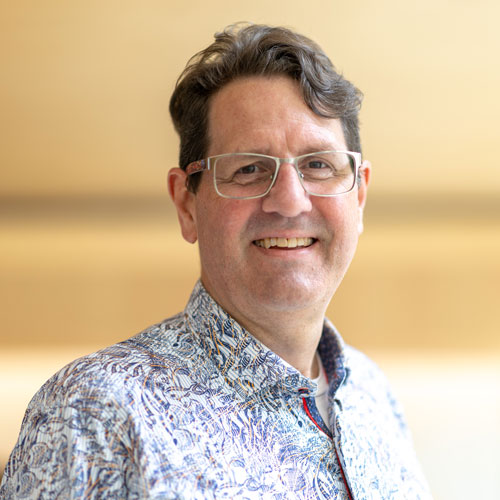
Robert Irish (ISTEP) — Sustained Excellence in Teaching Award
Recognizing a faculty member who has demonstrated excellence in teaching over the course of at least 15 years.
Over his 30-year career at U of T, Irish has made significant contributions to the development of the transdisciplinary competency curriculum in the faculty, particularly in the critical area of engineering communication.
Irish was hired in 1995 to pioneer a program to integrate communication skills into existing engineering courses. Under his leadership, this program developed into the Engineering Communication Program, which now delivers communication instruction across the faculty. Irish also spearheaded the development of new courses that integrated engineering subjects and communication, most notably Engineering Strategies and Practice and Praxis. Such integration of communication across the curriculum has completely reshaped engineering education at U of T.
More recently, his teaching has expanded to include engineering ethics and social impacts of technology. Irish has also contributed beyond U of T as the author/co-author of two widely used books on engineering communication. In 2019, he was awarded the IEEE Professional Communication Society’s Ronald S. Blicq Award for Distinction in Technical Communication Education, recognizing how his work helped take the practice of integrated communication instruction in engineering mainstream.
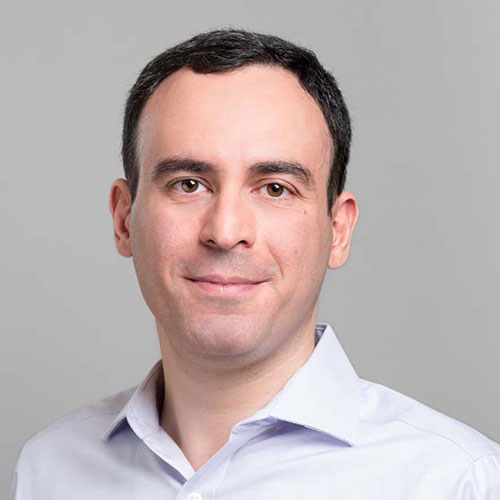
Ali Hooshyar (ECE) — Safwat Zaky Research Leader Award
Recognizing leadership in innovative interdisciplinary and multiple-investigator initiatives that has enhanced the faculty’s research profile.
As Canada Research Chair in Electric Power Systems, Hooshyar is working to improve the reliability and stability of electrical infrastructure. Hooshyar’s research and leadership have had a transformative impact on the power engineering community at U of T, across Canada, and internationally. He has demonstrated exceptional leadership in interdisciplinary initiatives, collaborations with industry, and major research programs that have significantly enhanced the research profile of the faculty.
Hooshyar played a key role in the establishment of the Grid Modernization Centre (GMC), a cutting-edge facility that brings together researchers from across the University with the goal of decarbonizing power grids and integrating renewable energy sources. Under Hooshyar’s leadership, the GMC has become a hub for collaborative multidisciplinary research, industry partnerships and policy engagement.
Hooshyar has also been instrumental in leading multiple investigator research initiatives that address critical challenges in modern power grids. He recently led a $2M initiative creating a coalition of key utilities — including Hydro One, Toronto Hydro, Hydro Ottawa and Alectra — to develop next-generation grid codes for power distribution networks in Ontario.


